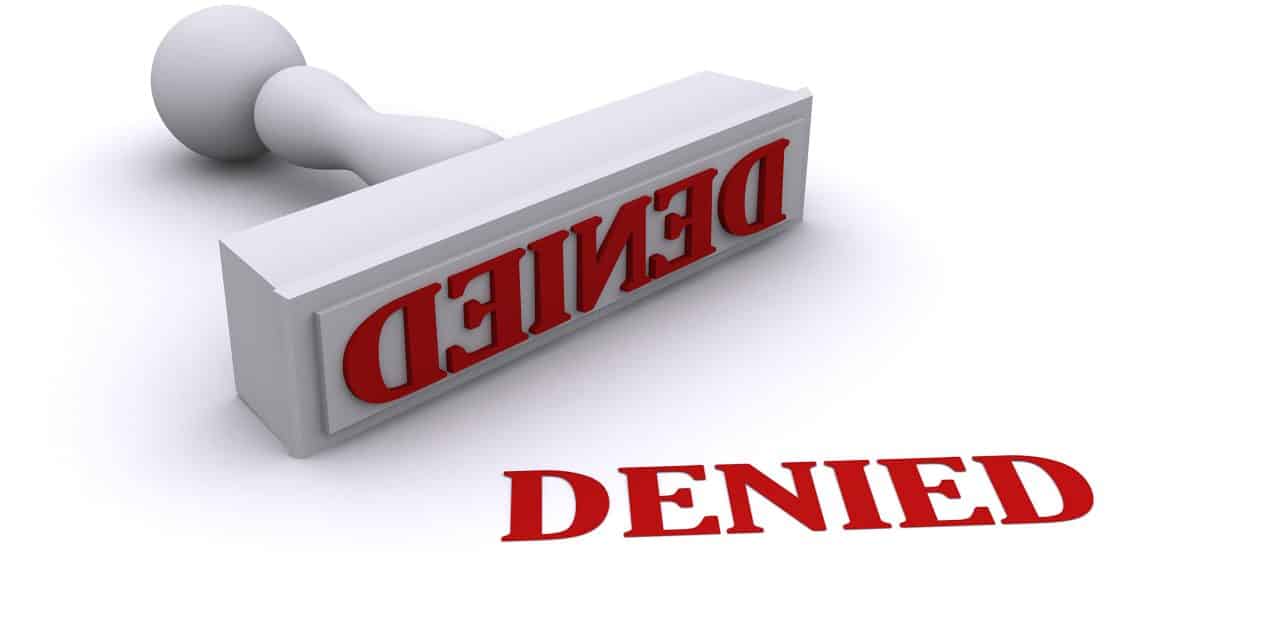
BCBSIL Denial of Claims with Modifiers Update

The ICS now has heard from numerous members about the significant financial and administrative impact on their practices, resulting from a BCBSIL claims processing protocol that began in November 2017. When applied, this claim edit, described by BCBSIL as “code-auditing enhancement” via “clinically validating modifiers,” automatically denies some providers’ claims on codes that require the modifiers 25 or 59 (including XE, XS, XP, XU). The EOBs state the reason for the BCBSIL denial as: “The procedure code is inconsistent with the modifier used or a required modifier is missing…,” even though the modifiers are both present and consistent with CPT® and other guidelines followed by BCBSIL. The BCBSIL denial occurs prior to, and without any request for, medical records. Based on the volume of calls to the ICS, it appears that this “code-auditing enhancement” via “clinically validating modifiers” now is impacting a significant number of chiropractic physicians in Illinois who are participating providers with BCBSIL.
The ICS shares members’ concern that this new process has created an unjustified barrier to care for BCBSIL patients. We have worked continuously on this matter since early December, and it is important to the ICS that members be made fully aware of all of our activities and BSBSIL’s response. This problem is our number one priority to which we are applying most of our resources at this time.
Modifier Criteria
As explained in greater detail below, our efforts have included discussions with BCBSIL liaisons, other state associations, other provider groups, national associations, our legal team, and a face-to-face meeting with a number of BCBSIL executives at BCBSIL headquarters. At the meeting with BCBSIL, we expressed our strong disagreement with the method that BCBSIL is utilizing to deny these claims. We asked BCBSILto reveal the criteria used to determine the claims to which the modifier edit is applied, and we took issue with BCBSIL’s reasons for the claim denials shown on the EOBs. We also contended that, except in rare cases, decisions regarding the valid use of these modifiers can only be determined by a medical documentation review.
Unfortunately, despite our efforts and despite providing BCBSIL with ample time and opportunity, the ICS has been given no indication that BCBSIL will cease its use of the claim edit. Therefore, at this time, the ICS is continuing to advise its members to take all steps possible to contest the BCBSIL denial(s) based on this claim edit, as well as to mobilize BCBSIL patients to take their own action. Additionally, the ICS will be presenting patient education materials and physician education specifically targeted at this issue, as well as coding, billing, and documentation of both therapies and evaluation and management codes. These classes will be designed to assist our members in their ability to provide necessary, evidence-based, efficient treatment for their patients; to maximize reimbursement; and to succeed in appeals following claim denials. At the same time, the ICS is looking into other recourse that may be available to our members and to the association as a whole, and we have not ruled out any options.
Here is background information on the BCBSIL claims processing protocol and updates on our activities, including our meeting with BCBSIL:
Background
In November 2017, BCBSIL instituted a claims processing protocol — “code-auditing enhancement” via “clinically validating modifiers” — that began denying some providers’ claims on codes that require the modifiers 25 or 59 (including XE, XS, XP, XU). After making initial contact with BCBSIL regarding the change, we were informed that the change would only impact a small number of providers; that it would impact several provider groups; and that BCBSIL was using claims processing data analysis to identify the claims to which the protocol is applied.
Based on our call volume, we believe that the change has, in fact, impacted a significant number of chiropractic providers in the BCBSIL network. BCBSIL has not revealed any standard protocol used to identify claims to which the edit is applied, although BCBSIL has indicated that it is designed to identify medically unnecessary evaluation and management (E & M) services and manual therapy services (CPT® Code 97140) to curb the practice of some providers of performing and/or bill E & M services at every visit, as well as the practice of routinely providing 3-4 units of massage billed under 97140, when these services are not medically necessary. Finally, BCBSIL has told us that this policy is applied not by provider type but is applied across all claims that include these modifiers. In addition to extensive research and conversations with individual doctors around the state, we have talked about the billing practice and BCBSIL denial(s) with several other health care provider associations whose members have also been affected, including medical doctor and physical therapist organizations; national health care associations; attorneys; Certified Professional Coders; compliance experts; and many others.
Meeting with BCBSIL
In addition to the activities listed above, the ICS met on March 7, 2018, with a team of BCBSIL representatives, including senior managers. The ICS expressed strong disagreement with the process applied to claims with these modifiers, particularly if the purpose of the edit is to recognize medically unnecessary services. We asked BCBSIL to describe the criteria used to identify which claims will be subjected to the edit because we cannot see any pattern in the examples we have reviewed. We believe fairness dictates that network doctors be made aware of the rules BCBSIL applies in these cases.
In response, BCBSIL representatives stated the following about the Claims Edit Process applicable to network providers:
- The claims edit will look for “clinical validation” for modifiers 25 and 59 to validate the way modifier use is supported. This initial stage of clinical validation does not include medical records review.
- This edit is not applied based on a provider’s history; the methodology applies to a patient’s claim history and is applied to claims, not to providers.
- The methodology for deciding when the claim edit is to be applied to a particular claim: a nurse claims analyst reviews the claim history for that patient. If in the judgment of the analyst, the patient claims history warrants use of the edit, it will be applied to that claim and the service will be denied. If the patient’s claim history shows a certain frequency of procedures for that patient, the edit will be applied and the claim denied, even if some of the procedures were performed by a physician other than the one submitting the current claim.
- Every BCBCIL covered member-patient is treated differently, depending on claims history.
- In response to the ICS’ question regarding specific guidelines BCBSIL uses to determine which patients’ claims are subject to the claims edit, BCBSIL repeatedly stated that to answer this question, BCBSIL must have examples of how the edit is being applied unfairly for them to review and explain to the ICS how the analyst decides when a claim warrants the edit. (The ICS provided examples to BCBSIL both before and after the meeting.) The ICS asked whether the guidelines applied by BCBSIL were based on a specific CMS alert; BCBSIL answered, “No.”
- BCBSIL asserted that 3% of their total claims with modifiers 25 and/or 59 are being denied. This statistic is based on the total number of claims submitted with modifiers and is not provider-specific. BCBSIL said that they, therefore, cannot extract data to identify whether the claim edit is having a disproportionate effect on claims submitted by chiropractic physicians.
- The provider who receives a BCBSIL denial under this claim edit may submit a Claim Inquiry/Request for Reconsideration or appeal, or both, and submit medical records for review.
- A claims inquiry is not an appeal; it is a provider inquiry, and if the provider wants a claims inquiry, he or she should ask for a reconsideration. The provider will still need to send in records; however, this is an additional process that does not waive the provider’s right to also appeal. An inquiry is triaged to a different area of BCBSIL with different staff. Appeals go to a separate unit. Correct terminology will result in correct routing and faster response.
The ICS has questioned EOB denial language that informs the patient the claim is denied because the provider used incorrect coding. BCBSIL acknowledged that the language could be questioned, so they will be making changes. However, they are in the process of “operationalizing” and stated they could not provide it to the ICS at the time of the meeting or when we asked again after the meeting. We have recently seen slightly different language on one EOB, but BCBSIL has not discussed or shared new language with us, so we still do not know what new standard explanation will be provided on patient EOBs as the reason for the BCBSIL denial.
Current Recommendation and Upcoming Information
The ICS takes issue with the method BCBSIL is using to deny these claims; with the lack of information about how they decide which claims are subject to the claim edit; with the explanation provided to patients on the EOB; and with the appropriateness of evaluating the medical necessity of a provider’s examination based on examinations by previous providers. Therefore, we continue to recommend that doctors file a claim inquiry and/or appeal for each BCBSIL denial in which they believe BCBSIL has improperly applied the claim edit. Detailed instructions for filing a claim inquiry may be found here on the ICS website. In addition, providers still have the option of filing an appeal (in addition to a claim inquiry) within 180 days of the BCBSIL denial. The actual difference between a claims inquiry and an appeal remains vague, other than the claim is routed to a different (more appropriately staffed) department and does not impact the ability to take all appeal steps on a claim.
We understand that the routine filing of these inquiries and appeals places a strain on our already administratively-burdened members. However, we continue to believe it is the best protection for our members, based on what we know today.
Patient Involvement
Equally importantly, the ICS believes that patients’ involvement in their own health care and coverage has a significant impact on the quality of care and fairness of reimbursement. In the coming weeks, the ICS will provide materials for our members to give patients to educate them about how the BCBSIL claim modifier protocol is being applied and impacting their reimbursement, and, in turn, their ability to receive care. Patients may then use this information to urge others involved in health care insurance decisions (e.g., employers, other plan sponsors, or agents) to advocate on patients’ behalf so that they receive agreed-upon reimbursement for medically necessary, evidence-based required examinations and care.
Additionally, the ICS is continuing to review the most recent BCBSIL provider agreement and provider manual to prepare information about billing patients for denied services. We will publish that information in the near future.
Conclusion
Although we would have preferred an agreed resolution with BCBSIL, we must move forward based on the circumstances. As soon as we have additional information on this problem, we will notify chiropractic physicians through a special email release or the Illinois Practice Edge. Please encourage your colleagues to subscribe to our email notices here: https://ilchiro.org.
“CPT Copyright 2017 American Medical Association. All rights reserved.
CPT® is a registered trademark of the American Medical Association.”



















